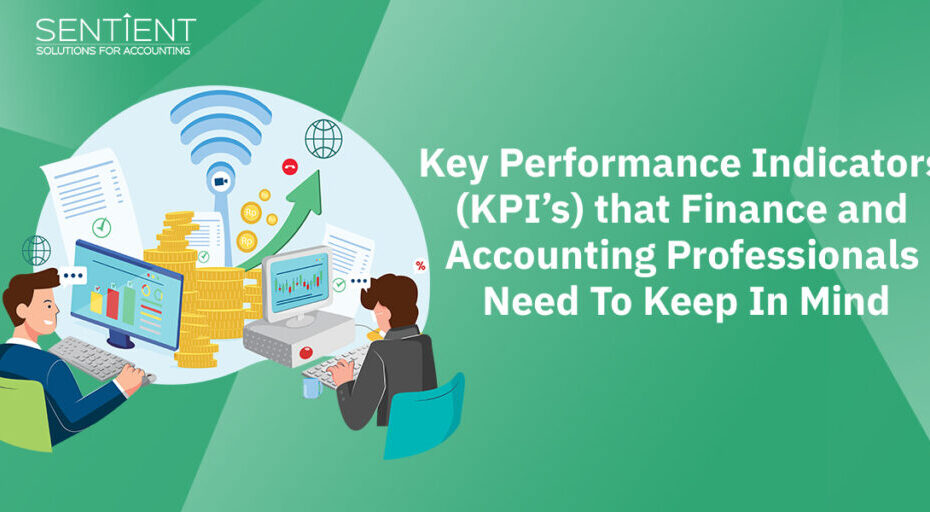It is essential for business objectives to be communicated and understood across the firm. This ensures that every person is aware of and responsible for their own KPIs, giving priority to overarching goals. Thus, KPIs help in placing objectives at the forefront of decision-making.
In addition, KPIs help in assessing how well the firm is doing against competitors and in different markets across the globe.
Qualitative KPIs
1)Attention to details
Peak seasons and deadlines are a part of the finance and accounting world. A CPA should ensure that deadlines are met while turning in error-free reports after in-depth analysis.
An accounting professional should have the competence to assess data and draw conclusions about its pertinence, coherence, and more importantly, user-friendliness. These qualities make for an accountant who is conscientious and competent.
2) Qualifications
Hiring an accountant professional with relevant industrial expertise and certifications goes a long way in adding credibility to their work in addition to them being aware of regulatory laws and industry practices.
Hiring should be based on a company’s needs and budget in addition to the complexity of the work. Whether a freelancer accountant or a CPA firm, the decision depends on the volume of work such as if client accounting services will be required throughout the year or just for preparing taxes at the end of the year.
3) Soft Skills
It is increasingly essential for personnel to collaborate and communicate effectively in the finance and accounting field. Given that these days it is common for the two people communicating to be in different geographical locations, the information conveyed must be simple and articulate. Accounting professionals must be proficient in verbal and written communication.
Critical thinking is an integral part of a finance and accounting professional’s arsenal. They need to detect trends and anomalies, devise strategies, and find solutions to problems. They must inspire trust, which means that they need to make an effort to build and maintain relationships.
4) Strategic Input
Accounting today is not limited to audits, reconciling the numbers, and preparing taxes. It has expanded to encompass a comprehensive understanding of business and offer valuable advice.
An accountant having pertinent knowledge about the industry and the company will be able to actively participate in strategic business planning. Providing valuable financial insights to help management with strategic decisions will go a long way towards building trust and developing relationships. This is an important quality that is sought after while hiring accountants.
5) Leveraging Technology
Being tech-savvy is becoming non-negotiable for finance and accounting professionals. Being proficient with software for word processing and spreadsheets is a no-brainer at this point. With pressure to turn in error-free reports and papers, technology must be leveraged to automate labor-intensive, time-consuming tasks to make this road smooth.
When technology is deployed as an aid to accountants, it streamlines the entire process making it more efficient; boosting performance and morale.
6) Ethical Practices
There are several instances where senior management has failed to identify accounting fraud. This has led to their subsequent downfall while incurring massive losses and closing shop.
Accounting frauds can be prevented if management enforces strict guidelines for ethical practices followed by training, disciplining, and observing the accountants. It is essential to make sure the accountants are aligned to clear moral values.
The above-listed qualities are required for accountants to perform well at work and slip into their roles with ease. The following are the standards against which their work attributes and productivity are assessed.
Quantitative KPIs
1) Net profit
Profit after all working expenses not included in the calculation of gross profit has been paid. These numbers are very closely tracked as it plays a pivotal role in ratio analysis and financial statement analysis. These numbers are the source of compensation to shareholders, and if a company is unable to generate sufficient profit to compensate owners, the share value will nosedive.
2) Net profit margin
The percentage of revenue left after all business expenses, interest, taxes and preferred stock dividends (but not common stock dividends) have been deducted from sales. This shows the amount of profit that a business is capable of extracting from its total sales.
3) Gross profit margin
This metric exposes the amount of money left over from sales after deducting the cost of goods sold. This makes it easy to assess a company’s financial health and business model and is often expressed as a percentage of sales. It is also called the gross margin ratio.
4) Sales growth
This particular metric measures the sales team’s ability to boost revenue over an established time period. Without growth, there is a high risk of stagnating and having competitors take over.
5) Current ratio
This is a liquidity ratio also known as the working capital ratio. It measures a company’s ability to pay short-term obligations or those due within one year.
6) Sales and Revenue
Revenue is the sum total of money generated by the company. Sales refer to the total consideration accumulated from selling products or services by the company.
7) Staff productivity
Evaluated by looking at the total workforce or employee output in a given time, the productivity of an individual is measured against the average output of other employees doing similar work.
By evaluating and comparing different KPIs, it becomes simpler to identify long-term patterns and short-term problems. These insights go a long way in enabling managers to take proactive measures to streamline the team.
